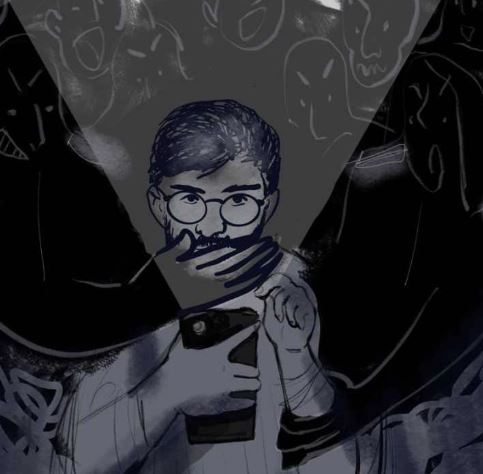
They may have left Azerbaijan, worked in exile or studied for their doctorates in European universities, but the increasingly repressive police regime in Baku is still hunting them down. In Azerbaijan, the post-2020 period is characterised by an ongoing crackdown on dissident voices: activists, academics, not to mention political opponents. Some issues are more sensitive than others: Karabakh, Armenia or the rights of Azerbaijan’s ethnic minorities, such as the Talish.
Bahruz Samadov, a brilliant 30-year-old doctoral student at Charles University in Prague, was arrested in Baku on 21 August 2024. After Iqbal Abilov, a young researcher of Talish origin, was detained at the end of July 2024, accused of ‘working with the Armenian services’, and Samad Shikhi, another pro-peace activist recently detained, then released, and like Bahruz, accused of collaborating with Armenian services and treason against Azerbaijan. The fate of Bahruz, who is also accused of collaborating with the Armenian services and treason, is a source of concern to his family, friends and colleagues.
Bahruz Samadov’s arrest: a strong signal against critics of the regime
When he left this summer to visit his family in Baku, Bahruz, a young intellectual, a pro-peace voice and a critic of the Azerbaijani regime, had every idea he could be next on the list. For several years, this doctoral student at Charles University in Prague has been one of the leading international voices denouncing the authoritarianism, militarism and racism that characterise the Aliyev regime.
His arrest was preceded by a heavy-handed search of his home in Baku, where the police seized his personal belongings, including his computer. The official justification for his arrest is based on alleged correspondence with Armenians, all of whom are also either researchers or pro-peace activists, for whom he is said to have written articles critical of the Azerbaijani government. In the eyes of the regime in Baku, this is treason in the true sense of the word.
Samad Shikhi, another intellectual known for criticising the government, was also arrested on 23 August, before being released, an exceptional occurrence. A post that appeared on his Facebook page a few hours later bore testimony against Bahruz. A similar pattern was repeated with another independent analyst in the same compressed chronological sequence from 23 to 27 August 2024, raising fears that false testimony against Bahruz could be fabricated in the days to come.
Iqbal Abilov: Repression of representatives of ethnic minorities
A month before Bahruz, Iqbal Abilov, a Talysh ethnographer, was arrested on similar charges of spying for the Armenians. Abilov, known for his work on minority rights in Azerbaijan, was accused of treason after allegedly communicating with an Armenian historian. Abilov is also one of the founders of the National Talish Academy, a scientific organisation registered in Riga, which has often published works on Talish culture. Abilov’s arrest is seen as an attempt by the regime to stifle any claim to identity and to criminalise the study of minorities. Abilov was accused of secretly collaborating with an Armenian intellectual, but his family and fellow academics vigorously denied this, denouncing the charges as fabricated.
Far from the image of a ‘country of tolerance’ conveyed by advertising posters and public relations campaigns financed by the Aliyev clan, the reality is one of relentless repression of dissidents and ethnic minorities, particularly the Talysh, who are regularly suspected of ‘separatism’ in the manner of the Karabakh Armenians – in short, of all those who dare to raise their heads and say something different from the official political discourse.
The series of arrests of Bahruz Samadov, Iqbal Abilov and Samad Shikhi marks an intensification of the repression in Azerbaijan, the most severe wave in decades. In the run-up to the international climate conference, COP 29, to be held in Baku in November 2024, silence about the reality of human rights in Azerbaijan is tantamount to complicity. More than 300 political prisoners are currently locked up in this country, including the Armenians arrested in Nagorno-Karabakh last October, not to mention the prisoners of war held since 2020.
